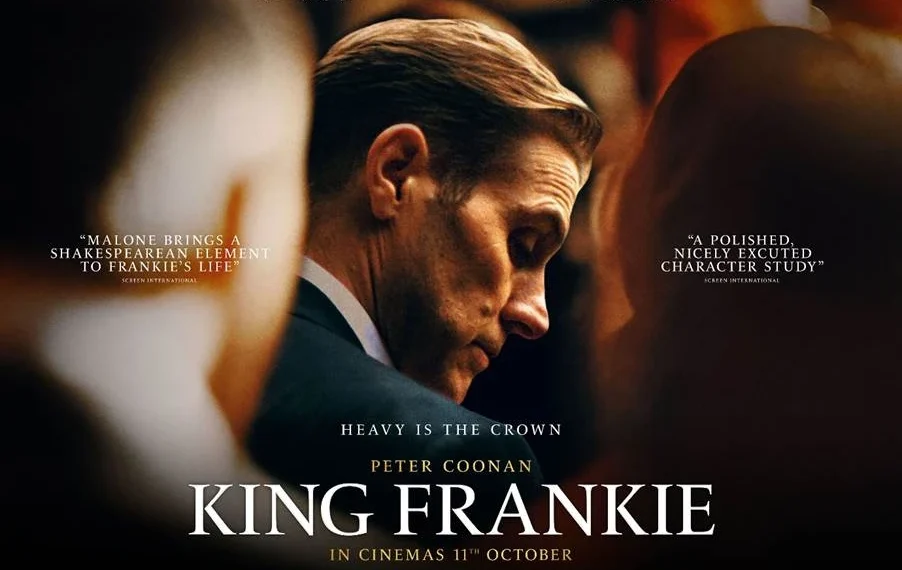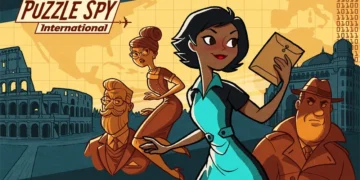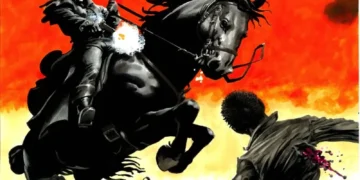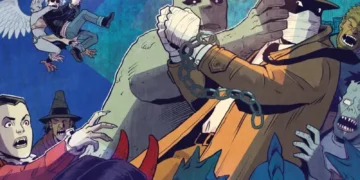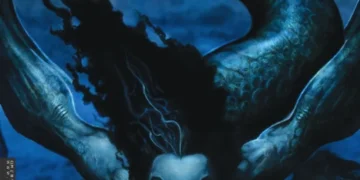Cast: Peter Coonan, Olivia Caffrey, Conor MacNeill, Ruairi O’Connor, Lynn Rafferty, Ally Ni Chiarain, Owen Roe, Rejjie Snow
Genre: Drama
Director: Dermot Malone
In Irish Cinemas: Now
King Frankie tells the gripping story of a man whose relentless pursuit of financial success leads him to confront the profound consequences of his past choices. At the film’s heart is Frankie (Coonan), a taxi driver and the owner of a modest taxi company. On the day of his father’s funeral, Frankie is unexpectedly forced to face a deeply buried trauma from a decade ago. As the past resurfaces, he finds himself wrestling with guilt and regret, sparking a journey of self-discovery and emotional healing. This powerful narrative delves into the themes of greed, grief, and the difficult path toward forgiveness and redemption. King Frankie offers a raw exploration of a man caught between the mistakes of his past and the hope for a better future. The film marks the debut feature from writer and director Dermot Malone, weaving a poignant tale that ultimately speaks to the resilience of the human spirit.
A decade earlier, we find him as the harried host of an extravagant birthday party for his daughter’s eighth birthday, held at a lavish country hotel. This moment contrasts sharply with the present day, and the tension between these two periods forms the film’s emotional backbone. The film’s sombre atmosphere shifts dramatically when it jumps into these flashback sequences. The energy is palpable, with fluid camerawork and brisk pacing capturing a more hopeful and buoyant Frankie. The party is an ostentatious display featuring a towering cake, a chocolate fountain, and even a bouncy castle. His wife, Jenny (played by Olivia Caffrey), appears exasperated by the spectacle, while their daughter remains mainly indifferent to the grandiose event.

The gathering isn’t just for family and friends—Frankie has invited vital business contacts, including Fraser (Ruairi O’Connor), a potential investor he’s courting for a supposedly foolproof deal. There’s a distinct sense of tension beneath the surface, reminiscent of the exploration of ruthless ambition and the cut-throat nature of business. Frankie’s mounting desperation to secure financial success is evident as he navigates an atmosphere filled with schmoozing and veiled power plays. But the looming shadow of the collapsing Celtic Tiger economy suggests that Frankie’s grand plans are about to be upended, his ambition on a collision course with the harsh realities of the impending economic downturn.

Malone infuses Frankie’s story with a theatrical drama resonance, drawing parallels between his destructive ambition and the classic themes of fate and tragedy. From a symbolic prick of blood foretelling doom to a spectral presence at a feast, Malone layers the narrative with these dramatic elements. Time itself seems to fracture with rapid-fire montages that propel the audience through critical moments. There’s a striking symmetry between Frankie’s childhood friend Peter (Alan Mahon) ominously appearing at a birthday party and Peter’s son Cathal (Rob Malone) later attending the funeral, reinforcing themes of legacy and cyclical tragedy. Malone elevates the emotional intensity through poetry and music, crafting poignant moments such as Frankie’s father Aidan (Owen Roe) reciting the haunting lines of “Tyger Tyger Burning Bright” and the nostalgic duet between Frankie and Peter as they sing “The Wild Rover” together.

These artistic flourishes deepen the emotional resonance, blending literature and music to enrich the characters’ journeys. Malone’s skilful direction shines in the performances. Coonan portrays Frankie with complexity, embodying a man whose past is filled with blinding ambition, wild energy, and desperation. As he ages, Frankie becomes more subdued, humbled by time and weighed down by guilt, a shadow of the fiery figure he once was. Roe’s portrayal of Frankie’s father adds warmth and quiet understanding, while Caffrey brings a sharp, weary determination to Frankie’s wife, a woman eroded by his relentless ambition and emotional distance.

Though some plot developments are somewhat predictable, and the party scene builds to an almost melodramatic climax with slow-motion visuals and swelling opera, the final confrontation is surprisingly subdued, avoiding the explosive resolution one might expect. Yet this restraint works in Malone’s favour; rather than opting for easy redemption, he chooses a more nuanced conclusion. Frankie’s story ends not with grand gestures but with subtle notes of hope and reconciliation, suggesting that healing is found in quieter moments.
Overall: 6.5/10

